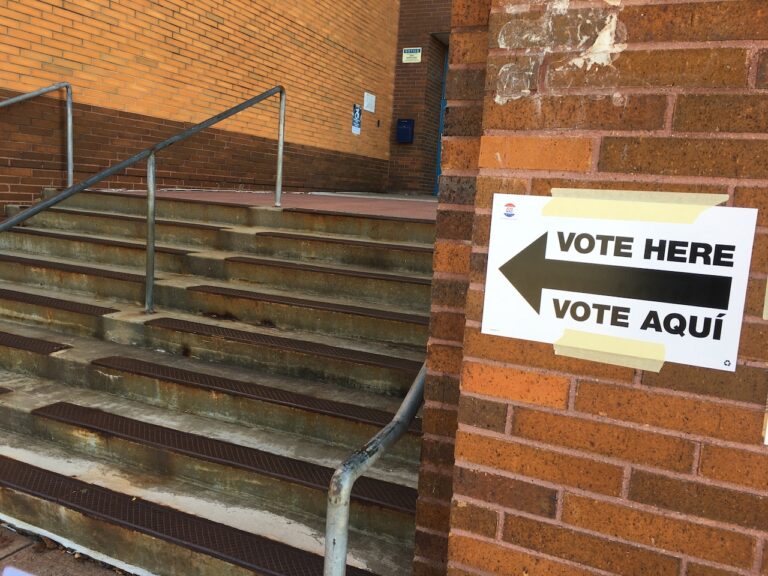EPPC Scholars Advocate for Stronger Anti-Harassment Measures at USAID
Advocating for Stronger Anti-Harassment Measures at USAID
When it comes to creating a safe and inclusive work environment, no organization can afford to ignore the pressing issue of harassment. Recently, a group of scholars from the Ethics and Public Policy Center (EPPC) put pen to paper—well, more like fingers to keyboard—and made their voices heard by advocating for stronger anti-harassment measures at the United States Agency for International Development (USAID). But what does this mean for the future of workplace safety and how do these suggestions impact our collective fight against harassment?
A Brief Overview of USAID
Before diving into the crux of the matter, let’s set the stage. USAID is a U.S. government agency primarily responsible for administering civilian foreign aid and development assistance. Their mission is to “promote and demonstrate democratic values abroad and advance a free, peaceful, and prosperous world.” Quite the lofty goal, right? However, if we think about it, no organization can hope to achieve ambitious strides in global development unless it first ensures that its own workplace is free from harassment and discrimination.
Why Anti-Harassment Policies Matter
Now, you may be wondering, “Why are anti-harassment measures so vital?” Well, think of it this way: a workplace plagued by harassment is like a plant in toxic soil. No matter how much you water and nurture it, it won’t thrive. A robust anti-harassment policy is essential not only for protecting individuals but also for fostering a culture of trust, respect, and productivity.
In essence, effective measures can lead to:
- Increased employee morale
- Greater retention rates
- Enhanced organizational reputation
Isn’t that something worth striving for?
The Current State of Anti-Harassment Policies at USAID
You might be thinking, “What’s happening on the ground at USAID?” Well, as of late, certain concerns surrounding inadequate anti-harassment measures have been raised. Critiques have pointed out that while policies exist, they may lack the teeth necessary for enforcement or fail to provide sufficient training and resources for employees. The need for stronger guidelines is pressing, and that’s where the EPPC scholars come into play.
The Scholars’ Advocate: A Call for Strong Reforms
In their comprehensive comment letter to USAID, the EPPC scholars highlighted a fundamental truth: addressing harassment requires more than just surface-level attempts; it demands significant reform. Their suggestions can be boiled down into several key points, which we’ll unpack below.
1. Comprehensive Training Programs
Imagine attending a cooking class where the instructor only briefly mentions the recipe but never actually shows how to make the dish. You’d likely leave confused and still hungry. Similarly, comprehensive training programs on anti-harassment policies are crucial. The scholars urge USAID to implement in-depth training sessions that cover not just policies but also the nuances of behavioral expectations, how to report incidents, and the importance of bystander intervention.
2. Transparent Reporting Mechanisms
Ever tried finding a needle in a haystack? That’s pretty much what it’s like when you have unclear reporting mechanisms for harassment issues. The EPPC scholars advocate for transparent and user-friendly reporting avenues that encourage employees to come forward without fear of repercussions. Think online forms, dedicated hotlines, or even anonymous surveys. Providing clear instructions and multiple reporting channels can make all the difference.
3. Accountability and Follow-through
One of the most frustrating aspects of workplace harassment is when reports are brushed under the rug or not followed up on. It’s like planting a seed and forgetting to water it; nothing is going to grow! The scholars emphasize the necessity for a system of accountability, ensuring that complaints are taken seriously and investigated thoroughly. This means regular reviews and updates to the policies based on the feedback received.
4. Cultivating an Inclusive Workspace
Have you ever felt out of place in a group? It’s an uncomfortable feeling, and no one should experience that at work. A commitment to cultivating an inclusive workplace goes beyond just policies—it’s about fostering relationships. Encouraging dialogue, hosting diversity training, and promoting programs that uplift marginalized voices can transform the atmosphere of any workplace.
5. Periodic Policy Review
Nothing stays static for long! Just as the world changes, so too should workplace policies adapt to meet evolving societal norms and expectations. The EPPC suggests regular reviews of anti-harassment policies to ensure they remain relevant and effective. Imagine a garden where you never prune the dead branches; not only does it look unkempt, but it also impedes the growth of new blooms.
The Broader Implications of Stronger Anti-Harassment Measures
Strengthening anti-harassment measures at USAID has implications that extend far beyond the agency itself. It sends a strong message to other governmental and non-governmental organizations about the importance of prioritizing employee safety and well-being. In a world where harassment is all too common, the ripple effects of robust policy implementation can inspire similar reforms across various sectors.
Moving Forward: The Role of Each Individual
Change is rarely implemented by a single entity; it requires the commitment of every individual involved. As employees, colleagues, or even bystanders, we all play a role in promoting a safe environment. It’s essential for everyone to be vigilant, speak up against inappropriate behavior, and contribute to the collective effort to weed out harassment from workplaces.
Encouragingly, the advocates from EPPC are not just pushing for theoretical changes—they’re calling for a cultural shift. It’s about creating an environment where everyone feels empowered and protected.
Conclusion
The call from EPPC scholars for stronger anti-harassment measures at USAID is not just a plea for policy changes; it’s a powerful reminder of our collective responsibility to foster safe and inclusive workplaces. By promoting comprehensive training, transparent reporting methods, accountability, and inclusion, we can create environments where everyone can thrive without fear of harassment.
So, what can you do today to make a difference in your corner of the workplace? Whether it’s speaking out against inappropriate behavior, advocating for training sessions, or simply being a supportive colleague, every effort counts.
FAQs
1. Why is anti-harassment training important in the workplace?
Anti-harassment training helps employees understand unacceptable behavior, equips them with the tools to prevent it, and fosters a respectful workplace culture.
2. How can employees report harassment at USAID?
Employees should look for documented channels for reporting, such as an HR department contact, online reporting forms, or designated hotlines, ensuring that the process is clear and accessible.
3. What role does leadership play in preventing harassment?
Leadership sets the tone for an organization’s culture. When leaders prioritize anti-harassment measures and model respectful behavior, it encourages a culture of accountability and respect among all employees.
4. How can organizations assess the effectiveness of their anti-harassment policies?
Regular evaluations, surveys, and feedback from employees can help organizations assess how well their policies are being implemented and whether they are effective in preventing harassment.
5. Can cultural changes within organizations influence anti-harassment measures?
Absolutely! A culture that promotes open dialogue, supports diversity, and prioritizes respect encourages individuals to report incidents and seek help, developing a safer and more inclusive workplace.







